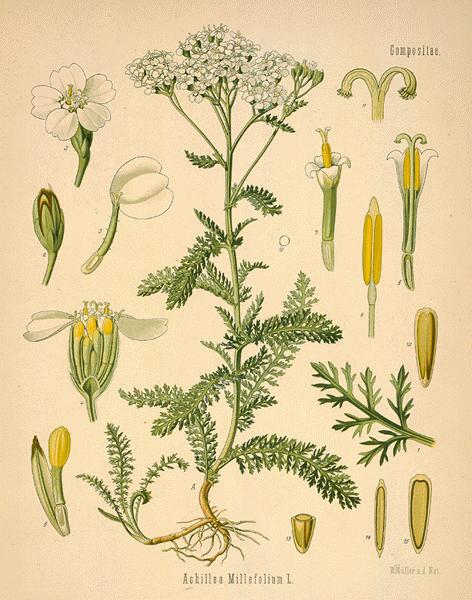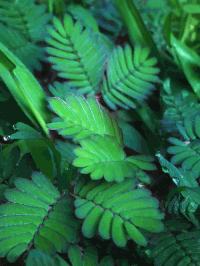Hypotensive
Yarrow
- Scientific Name: Achillea millefolium
- Plant Family: Compositae
- Parts Used: The whole plant – stems, leaves, flowers, collected in the wild state, in August, when in flower.
- Actions: Diaphoretic, Hypotensive, Astringent, Diuretic, Antiseptic, Anticatarrhal, Emmenagogue, Hepatic, Stimulant, Tonic, Mild Aromatic
The Basics:
Yarrow is a wound herb, astringent and healing, and rich in vitamins and minerals. Bind bruised fresh leaves to cuts, or make an ointment by pounding the flowers and mixing with coconut oil, or bathe wounds with yarrow tea. The tea is also a good tonic drink, it restores lost appetite and promotes perspiration during colds and fevers. Chew fresh leaves to soothe toothache.
Yarrow also lowers blood pressure due to a dilation of the peripheral vessels. It stimulates the digestion and tones the blood vessels. As a urinary antiseptic it is indicated in infections such as cystitis. It is considered to be a specific in thrombotic conditions associated with high blood pressure.
The flowers are often steamed and inhaled to treat hay fever and asthma and in teas for respiratory problems, as a wash for eczema and other skin conditions; and in chest rubs for cold, flu, and inflamed joints. Continue reading
Rennie Luttrull: queen-annes-lace-seeds
Rosanna: Spignel aka Bald Money
Annamarie Squatrito: Fumitory
EILEEN Klinghagen: Pumpkin
Mahmudul Hasan: Celery


